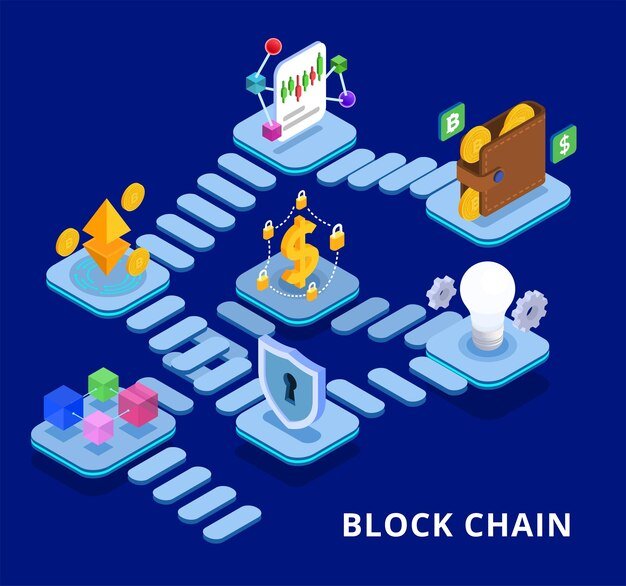Blockchain innovation is a decentralized framework that stores computerized data across an organization of PCs, making a chain of blocks containing information. Each block contains a rundown of exchanges and a one of a kind identifier (hash) connecting it to the past block, framing a permanent record.
The decentralized nature implies no single element controls the information, improving security and straightforwardness. Exchanges are confirmed by network members (hubs) through agreement components like evidence of work or verification of stake, guaranteeing exactness without a focal power.
This innovation is commonly known for its application in digital currencies like Bitcoin, yet its true capacity stretches out past money. It empowers secure, sealed record-keeping in different ventures, from production network the executives and medical care to casting a ballot frameworks and brilliant agreements.
Blockchain innovation tracks down applications across different enterprises. In finance, it reforms installment frameworks, empowering quicker and less expensive get line exchanges while decreasing extortion through straightforward, unchanging records.
Medical services influences blockchain for secure and open patient records, guaranteeing information respectability while keeping up with patient protection. Casting a ballot frameworks can turn out to be safer and straightforward, lessening extortion prospects.
Decentralized finance (DeFi) stages offer imaginative loaning, acquiring, and exchanging choices, changing customary monetary administrations.
Furthermore, blockchain's savvy contracts robotize and authorize arrangements, smoothing out processes in land, protection, and lawful areas. Energy exchanging can turn out to be more productive by empowering shared energy exchanges utilizing blockchain innovation.
Public and private blockchains vary basically in their openness, control, and level of decentralization. Public blockchains, as Bitcoin and Ethereum, are available to anybody; they're decentralized, permitting anybody to join the organization, check exchanges, and access the whole history of exchanges.
Then again, private blockchains are permissioned, restricting access and control to explicit elements or hubs. These are many times utilized in big business settings, permitting organizations to keep up with command over their organization, set consents for members, and keep delicate data hidden.
Public blockchains focus on decentralization and straightforwardness, while private blockchains center around controlled admittance, security, and productivity, taking special care of various necessities in light of the unique situation and prerequisites of the substances in question.



Hii, azeemtariq
You Can Upvote My Post In Return I Will Upvote Your Post
Downvoting a post can decrease pending rewards and make it less visible. Common reasons:
Submit
Saludos amigos
Excelente información sobre el blockchain
Rastrea información sobre diferentes empresas
Hasta los médicos utilizan esto pa llevar el registro de sus pacientes
Downvoting a post can decrease pending rewards and make it less visible. Common reasons:
Submit
Thank you, @azeemtariq, for the insightful post on blockchain technology. Your explanation of blockchain's decentralized nature, creating secure and transparent records, is clear and informative. I appreciate the exploration beyond cryptocurrencies, highlighting its applications in healthcare, supply chain management, voting systems, and smart contracts.
The real-world applications section provides a practical understanding of blockchain's impact, from revolutionizing finance with faster transactions to securing patient records in healthcare. The mention of decentralized finance (DeFi) and smart contracts showcases the technology's adaptability in transforming traditional financial services and automating processes in various sectors.
Additionally, your explanation of the key differences between public and private blockchains is concise and helps grasp their fundamental distinctions. It's great to see how blockchain is not just about decentralization but also about catering to different needs, whether in open accessibility or controlled environments.
Keep sharing your insights! 🌐 #BlockchainTechnology #RealWorldApplications #Decentralization
Downvoting a post can decrease pending rewards and make it less visible. Common reasons:
Submit